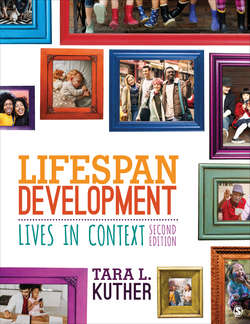Читать книгу Lifespan Development - Tara L. Kuther - Страница 296
На сайте Литреса книга снята с продажи.
Trust Versus Mistrust
ОглавлениеFrom the day she was born, each time Erin cried, her mother or father would come to her bassinet and hold her, check her diaper, and feed her if necessary. Soon, Erin developed the basic expectation that her parents would meet her needs. According to Erikson (1950), developing a sense of trust versus mistrust is the first developmental task of life. Infants must develop a view of the world as a safe place where their basic needs will be met. Throughout the first year of life, infants depend on their caregivers for food, warmth, and affection. If parents and caregivers attend to the infant’s physical and emotional needs and consistently fulfill them, the infant will develop a basic sense of trust in her caregivers and, by extension, in the world in general.
However, if caregivers are neglectful or inconsistent in meeting the infant’s needs, he will develop a sense of mistrust, feeling that he cannot count on others for love, affection, or the fulfillment of other basic human needs. The sense of trust or mistrust developed in infancy influences how people approach the subsequent stages of development. Specifically, when interaction with adults around them inspires trust and security, babies are more likely to feel comfortable exploring the world, which enhances their learning, social development, and emotional development.
Toddlers take pride in completing this task—tooth brushing—all by himself, developing a sense of autonomy.
iStock/dszc
